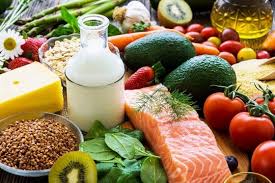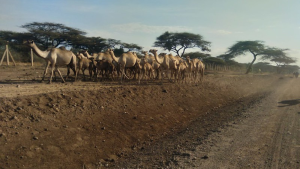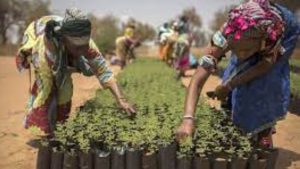Today, October 16th, marks World Food Day, a global observance dedicated to raising awareness of hunger and food insecurity.
The theme for this year, “Right to Food for a Better Life and a Better Future,” underscores the fundamental human right to access nutritious food and its critical role in ensuring a prosperous and sustainable society.
In Kenya, a country rich in natural resources and cultural diversity, the issue of food insecurity remains a pressing concern. Despite significant strides in agricultural development, many Kenyans continue to face challenges in accessing adequate and affordable food.
This is particularly true for vulnerable populations, including rural communities, children, and women. The right to food is not merely about physical survival; it’s a cornerstone of human dignity and well-being. When people have access to nutritious food, they are better equipped to lead healthy, productive lives, contribute to their communities, and achieve their full potential.
“Non-Communicable Diseases are the leading cause of mortality, disease and disability, representing almost 8 out of every 10 deaths in the region, approximately one third of which are among persons aged 30 – 70 years,” reports the Non-Communicable Diseases Alliance Kenya (NCD Alliance Kenya).
The sobering statistics from the NCD Alliance Kenya highlight the urgent need for action to combat Non-Communicable Diseases (NCDs) in the region.
These diseases, which include heart disease, stroke, cancer, and diabetes, are the leading causes of death and disability, disproportionately affecting people between the ages of 30 and 70.
The NCD Alliance Kenya serves as a crucial platform for organizations, patient groups, and professionals involved in NCD advocacy, prevention, control, care, and rehabilitation.
By working together, these organizations can raise awareness, promote healthy lifestyles, and support those affected by NCDs.
To address the challenges of food insecurity in Kenya, we must adopt a multifaceted approach that involves:
- Promoting sustainable agriculture: Investing in sustainable farming practices can help increase agricultural productivity, reduce food waste, and protect the environment. This includes supporting small-scale farmers, promoting agroforestry, and adopting climate-smart agriculture techniques.
2. Strengthening food systems: Enhancing the efficiency and resilience of food systems is crucial for ensuring that food reaches those who need it most.
This involves improving infrastructure, reducing post-harvest losses, and promoting fair trade practices.
3. Addressing inequality: Addressing underlying social and economic inequalities is essential for ensuring that everyone has access to food. This includes implementing social safety nets, promoting gender equality, and empowering marginalized communities.
4. Promoting food education: Educating people about the importance of healthy diets and nutrition can help individuals make informed choices and improve their food security. This includes promoting food literacy, encouraging home gardening, and supporting community-based nutrition programs.
As individuals, we can also play a significant role in addressing food insecurity. By reducing food waste, supporting local farmers, and making conscious choices about the food we consume, we can contribute to a more sustainable and equitable food system.
World Food Day is a reminder of our collective responsibility to ensure that everyone has the right to food. By working together, we can create a world where hunger and malnutrition are a thing of the past and where everyone can enjoy a better life and a better future.
Let us commit to taking action on this important issue.
Together, we can build a more just and sustainable future for all Kenyans.



